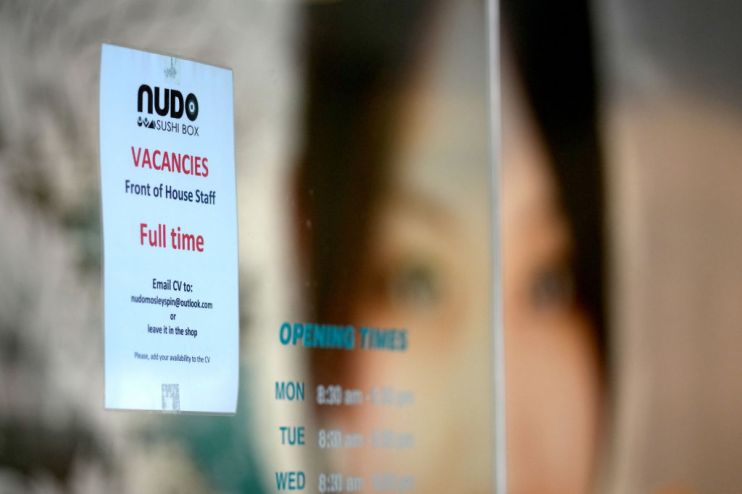Signs of unemployment jump emerge in UK economy – and it won’t solve worker shortages

There are some signs that Britain’s red hot jobs market is calming down.
That’ll please officials at the Bank of England, who, remember, are trying to make people and businesses (on average) a bit worse off to tame inflation.
Private sector workers pocketed an average seven per cent jump over the last year, in line with Threadneedle Street’s new forecasts put out last week.
Across the entire labour market, pay increased 5.8 per cent, matching the City’s expectations.
No prizes for correctly guessing who bagged the largest pay increase of the last year (bankers, at 8.8 per cent).
The gap between private sector and public sector workers’ pay increases has narrowed substantially over the last few months – it’s now down to 1.4 percentage points from around four percentage points last winter.
That’s all the more surprising given demand for staff is trimming. Payrolled employees dropped 136,000, the first decline of that experimental figure since February 2021. Vacancies continue to fall.
Payroll employee numbers slipped over last month

A record net outflow of people out of economic inactivity – defined as people out of the job and not looking for one – of 251,000 signals a few things.
One: students are coming to the end of their courses and picking up new gigs to repair their (most likely) debt-ridden finances.
Two: soaring living costs are luring people back into the labour market. Over 20,000 retirees took on a role or are looking for one over the three months to March.
Three: long-term sickness is a big problem. The number of people ditching job searches altogether due to chronic sickness climbed to a record high of just over 2.5m.
Some will doubtless say we could tap these domestic idlers to plug worker shortages in sectors like social care and food production. Those same people need to apply themselves a bit better.
Most people who are unemployed have been so for fewer than six months. They will find a new role pretty quickly, probably in the field they’ve already specialised in. They will also be young graduates keen to put their degrees to use.
Those who tend to be out of the workforce for a long time, and who are therefore at a greater risk of forgetting their existing skill set or being unable to develop a new one effectively, flow into economic inactivity.
If they have done so, they are also likely to be part of the group not participating in the workforce due to long-term sickness. They don’t need funds to help them retrain, they need support with healthcare first.
If the main function of the labour market is to get people in employment to give them an income to sustain their lifestyle, then the UK’s is still falling short.
Compared to pre-pandemic employment data, “285,000 more people would be in work today if the employment rate was at its pre-Covid level,” the Resolution Foundation said today.
Still ground to cover.